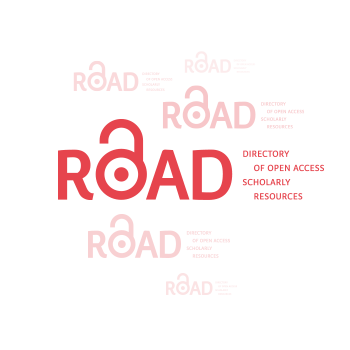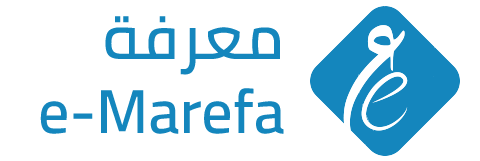Publication Ethics Statement
Publication Ethics Statement for Journal of Palestine Ahliya University for Research and Studies
Overview of the Policy
The Palestine Ahliya University Journal for Research and Studies pledges adherence to ethical publishing practices, ensuring high-quality articles. The journal complies with The Committee on Publication Ethics COPE, the publisher's code of conduct, editors' regulations, and reviewer rules. Consequently, ethical standards are mandated for all participants, encompassing writers, editors, reviewers, and publishers. This policy outlines key practices to be adhered to in the publishing process.
Misconduct allegations will be probed following the best practice guidelines by The Committee on Publication Ethics COPE. The journal office is proficient in handling investigations into ethical misconduct allegations and will procure legal advice when needed.
This policy delineates essential practices to be followed by all parties engaged in the publishing process.
Composition and Duties of Editorial teams
Editors-in-chief should hold a minimum rank of associate professor, and each journal's editorial team should ideally include at least one senior full professor. Editors-in-chief are highly involved in the selection of the editorial team. The Journal of Palestine Ahliya University for Research and Studies aims to assemble editorial teams consisting of individuals from various institutions, preferably based in different countries, to minimize conflicts of interest.
The journal is overseen by an editorial board, whose members may be appointed by the editorial team and, if necessary, the Palestine Ahliya University. The board's duties include monitoring and maintaining publishing ethics, among other responsibilities. The Editor-in-Chief is responsible for the academic quality of the publication process, which includes approving guest editors, special issue topics, and new editorial board members.
Strict confidentiality is required when handling submissions by the journal's editors, and assessments must be prompt and unbiased. Manuscript evaluations for scholarly content are the editors' responsibility, irrespective of the author's ethnicity, gender, nationality, religion, or political beliefs.
The Editor-in-Chief is in charge of deciding whether to accept or reject manuscripts for publication based on the results of the double-blind review process. Editorial independence is crucial, and no external parties, including the publisher, should influence editorial decisions.
Plagiarism Complaints
Plagiarism occurs when an author uses another's work (typically the work of another author) without obtaining permission, giving credit, or providing proper acknowledgment. This can manifest in various ways, including, but not limited to, literal copying, substantial copying, and paraphrasing.
It is the responsibility of editors and staff to report any suspected instances of plagiarism to the Journal for Research and Studies at Palestine Ahliya University. The publisher and editor-in-chief will then decide on the appropriate course of action in response to such cases.
The Journal of Palestine Ahliya University for Research and Studies uses Turnitin to check all manuscripts for plagiarism prior to publication. Authors and researchers can also employ Turnitin to examine their work before submitting it by visiting: www.turnitin.com.
Peer Review
The peer-review process is employed to evaluate a manuscript's quality before publication. Scientifically qualified experts in the relevant field assess manuscripts for originality, validity, and significance, assisting editors in deciding if a manuscript should be published in the journal. More information about the peer-review process can be found here.
Journal of Palestine Ahliya University for Research and Studies uses a double-blind peer-review system, where reviewers are unaware of the authors' identities or affiliations, and the reports provided to authors are anonymous.
Generally, two to three scientifically qualified experts will review submitted manuscripts. They will be asked to assess the submission's methodological rigor, the validity of findings based on the methodology, the appropriateness of conclusions, the manuscript's clarity for publication, and its placement within the existing scholarly literature. Reviewers will also evaluate the research's significance and interest and whether it duplicates previously published work. Typically, the editor-in-chief, subject editor, or guest editor, when applicable, will decide based on these reports, and, where necessary, they will consult with members of the Editorial Board.
Editors consider competing interests when a manuscript is submitted by a colleague at their own institution or their own research network. In such cases, a co-editor or external expert with no connections is asked to serve as the editor for that specific paper. If a journal's editorial team submits a manuscript to the journal, a co-editor will oversee the entire review process and act as the editor for that submission. Alternatively, the co-editor may assign an external trusted expert.
Article Correction
If an author identifies a significant error or mistake in their article after it has been officially published online, they should consult or notify the editor. If deemed necessary, an erratum or corrigendum will be issued. Links will be provided between the online version of the article and the erratum/corrigendum, allowing easy access to both.
Article Retraction
A retraction would occur for articles with significant flaws, rendering their findings or conclusions unreliable. Various reasons can lead to retraction, including honest mistakes reported by authors, research misconduct (such as data fabrication), duplicate or overlapping publications, fraudulent use of data, plagiarism, or unethical research. The retraction notice for any withdrawn article will clearly state the reason for the retraction and the party responsible for initiating it.
Author’s Responsibilities and Duties
Authors are required to reveal any actual or potential conflicts of interest, including financial, personal, or other connections with individuals or organizations that could improperly influence or be perceived to influence their work. They must also acknowledge funding sources by naming the parties, institutions, or individuals who financially supported the research or manuscript preparation.
All listed authors must satisfy the authorship criteria outlined in the Author Guidelines. Other contributors should be acknowledged in the paper's acknowledgments section, with their contributions detailed.
Authors must ensure the authenticity of all data referenced in the manuscript. They must promptly notify the publisher of any errors or discoveries that necessitate a correction or retraction and collaborate to amend the article through an erratum or retraction if needed.
Authors are expected to engage in the peer review process and provide necessary corrections, clarifications, retractions, and apologies when appropriate.
Complaints Policy
If an author believes their manuscript was wrongly rejected, they may appeal the decision. An editorial board member uninvolved in the initial decision will consider the appeal.
Authors who wish to submit a complaint related to the peer review process should contact the journal’s editor-in-chief as a first point of contact, with a CC to the editorial manager.
Policy on Ethical Approval for Research Involving Human Subjects
All research, studies, or investigations involving human subjects must adhere to the principles outlined in the 1975 Declaration of Helsinki. The primary objective of such research should be to contribute to societal benefits, particularly in the realm of public health. Additionally, scientific publications involving human subjects must demonstrate compliance with ethical standards in clinical research. The Journal of Palestine Ahliya University for Research and Studies upholds the principle that publishing clinical research serves as a measure of research ethics compliance and an audit of local and regional ethics committees that have approved the study. As a result, we follow the COPE guidelines for ethical publishing practices and advise authors to review these guidelines to ensure their research aligns with ethical standards.
Research Involving Human Subjects
For manuscripts that include research on human subjects—whether patient data, human samples (such as tissue, blood, or other biological materials)—the Journal of Palestine Ahliya University for Research and Studies requires authors to meet the following criteria:
1. Ethical Approval:
- Authors must obtain formal approval from an appropriately constituted research ethics committee before commencing their study.
- The approval document should include relevant details such as the type of materials or metadata used, project name, sample ID numbers, approval date, and the name of the ethics committee.
- Research should comply with all national and international ethical guidelines.
2. Exemption from Ethical Approval (if applicable):
- If ethical approval is not required for the study, authors must provide an official exemption from the ethics committee.
- This exemption should clarify why ethical approval was unnecessary and confirm the research remains ethically sound.
3. Informed Consent and Data Protection:
- Participants must receive clear information regarding the collection, use, and purpose of their personal data.
- Individuals have the right to control their personal information, particularly in sensitive cases or when dealing with vulnerable populations.
- In most cases, written informed consent must be obtained before including participants in the study.
- Identifiable participant details should not be published unless essential for scholarly purposes and with explicit written consent.
- While complete anonymity may not always be possible, authors must prioritize participant privacy and take necessary precautions to protect their data.
- If there is any uncertainty about whether written consent is required, it is recommended to obtain it.
4. Consent for Publication:
- Participants may agree to take part in a study but may not consent to having their data published. Therefore, authors must secure consent not only for study participation but also for data publication before submitting the manuscript.
- This requirement is especially critical for case studies.
- Authors should include a statement regarding informed consent in the article’s declaration section before the references. If informed consent is not applicable, the statement should indicate ‘Not applicable.’
- Authors are responsible for ensuring the accuracy of the statements regarding consent in their manuscript.
The Editor-in-Chief reserves the right to reject submissions that fail to meet these ethical requirements or remove data from publication if informed consent was not obtained. In cases of non-compliance, the journal may retract a paper with a formal notice explaining the reason for retraction. If full informed consent cannot be obtained, research must adhere to international ethical guidelines, such as those set by the Council for International Organizations of Medical Sciences (CIOMS).
Policy on Ethical Approval for Research Involving Animals
All studies involving experiments on animal subjects must undergo review and receive approval from an ethics committee before the research begins. All experimental procedures must be conducted in accordance with national and institutional regulations. Authors are required to provide comprehensive details regarding the housing and husbandry conditions of the animals, as well as the pain management strategies used, within their manuscript.
When conducting research on animal subjects, authors must ensure adherence to the 3Rs principle:
- Replacement – Whenever possible, replace the use of animals with alternative methods.
- Reduction – Minimize the number of animals used in experiments while maintaining scientific integrity.
- Refinement – Optimize experimental procedures and conditions to reduce harm and distress to animals.
Additionally, authors should reference ethical guidelines such as the Code of Practice for the Housing and Care of Animals Bred, Supplied, or Used in Scientific Purposes, American Association for Laboratory Animal Science, or EU regulations on animal research.
If national laws do not require ethical approval for the study, authors must obtain an exemption from the ethics committee, which should clearly state the reasons why approval was unnecessary. In such cases, the ethical statement in the manuscript should indicate that approval was “not required.”
For studies involving live animals, the Journal of Palestine Ahliya University for Research and Studies follows the ARRIVE guidelines for reporting animal research.
Editor-in-chief, Prof. Dr. Nasser Jaradat; nasser@paluniv.edu.ps
Managing Editor , Asst. Prof. Dr. Mousa Ajouz; m.ajouz@palunive.edu.ps











